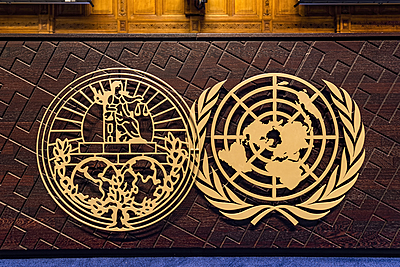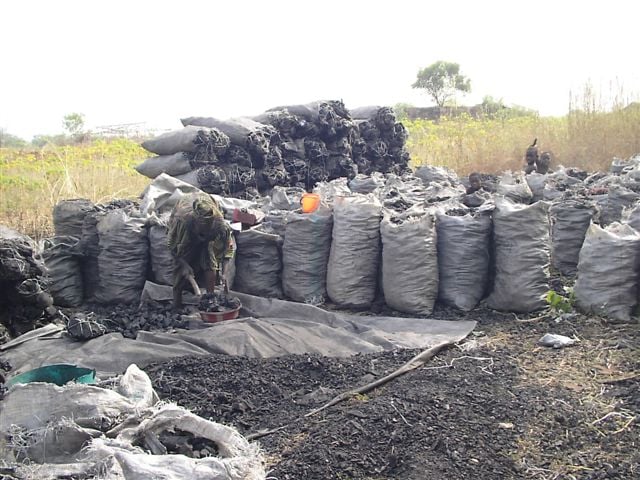Photo: un-redd.org
The federal government says it is taking steps to unlock $2 billion from Nigeria’s forest economy as part of efforts to tackle deforestation, create jobs, and promote financial inclusion.
Vice-President Kashim Shettima spoke on Monday at the 2025 Nigeria Forest Economy Summit in Abuja, warning that over 90 percent of the country’s original forest cover has been lost.
The summit, themed ‘Sustainability of Nigeria’s Forests: Unlocking the $2 Billion Potentials for Economic and Financial Inclusion’, was organised by the presidential committee on economic and financial inclusion (PreCEFI) secretariat in the office of the vice-president.
Shettima, represented by Ibrahim Hadejia, his deputy chief of staff, said more than 400,000 hectares of forest disappear annually, calling it both “an environmental crisis and an economic emergency”.
Advertisement
He said Nigeria must urgently prioritise sustainable forest management or risk being left behind in the global economy.
“Our forests are a treasure trove of biodiversity, timber, medicinal plants, and other valuable products that support agriculture, health, trade, climate resilience, and finance. Yet this vast potential remains largely untapped,” Shettima said.
“Vietnam earns over $15 billion annually from forest exports. Brazil’s Amazon contributes 15 percent of their GDP. Ethiopia has created 350,000 jobs through reforestation. Nigeria should not only replicate these but lead Africa’s forest industrialisation.”
Advertisement
Shettima also drew attention to new EU regulations that could hurt Nigeria’s exports, while calling for inclusive policies that empower women and youth who dominate the non-timber forest product value chain.
He said the government is working to align more than 1,100 forest reserves and national parks with strategic investments aimed at unlocking up to $3 billion in value.
“Europe is set to ban imports of goods from deforested lands. If we don’t act, we risk losing access to global markets,” he added.
“Over 70 percent of collectors are women and young people. Supporting cooperatives and forest-based enterprises can lift millions out of poverty.
Advertisement
“From bamboo to shea butter, carbon markets to eco-industrial parks — the opportunities are immense. Let us turn trees into trillions and forests into futures.”
UNLOCKING NIGERIA’S FOREST ECONOMY POTENTIAL
Also speaking at the event, Sadiq Sani, founder and CEO of Netzence Sustainability Limited, said the company is deploying technology to help Nigeria measure and monetise greenhouse gas emissions from its forests.
Sani said Netzence is working with the presidency and ministries including livestock development and environment to support carbon financing initiatives.
Advertisement
“Our aim is to build models that accurately estimate carbon credit potential from Nigeria’s forestry assets,” Sani said.
“It’s not just environmental. It’s economic, social, and knowledge-driven. But we can’t do it without government and multi-sectoral collaboration.”
Advertisement
Idi Maiha, minister of livestock development, said sustainable forest and rangeland management is key to improving water quality, reducing conflict over grazing resources, and promoting climate-resilient livestock systems.
Maiha said the creation of the ministry one year ago was a strategic move to unlock the economic potential of the livestock sector, in line with the forest economy agenda being pursued by the vice-president.
Advertisement
Maiha called for policy integration across forestry, land use, and livestock, and urged wider adoption of digital tools for monitoring, early warning, and productivity enhancement.
“To drive growth, we need access to climate finance, carbon markets, insurance, and credit tailored for small-scale farmers,” Maiha said.
Advertisement
“We must build partnerships that empower rural communities and transform natural assets into engines of growth.”
Nurudeen Zauro, technical adviser to the president on economic and financial inclusion and secretary of PreCEFI, said the summit was part of efforts to unlock underutilised sectors in line with President Bola Tinubu’s $1 trillion economy target.
Zauro also highlighted the role of border communities, which he said represent a large chunk of the country’s untapped economic base.
“The $2 billion refers specifically to Nigeria’s forest sector. That’s the opportunity we’re trying to expose,” he said.
“Partnering with the Border Community Development Agency gives us access to 21 states. These communities can’t be left behind.”
LOW PUBLIC AWARENESS HINDERS FOREST ECONOMY VALUE
George Kelly, executive secretary of the Border Communities Development Agency, said Nigeria has over 10.6 million hectares of forest that can be turned into revenue through carbon financing.
He said the agency is working with other stakeholders to gather accurate data and mobilise action to harness the sector.
“With proper management, we can generate between $5.3 billion and $10.5 billion annually. Even a conservative estimate of $2 billion equals ₦3 trillion — more than the annual budget of most states,” Kelly said.
Danny Sokari, chairman of WEN Synergies Nigeria Limited, said the lack of public awareness about the forest economy’s value is a major barrier.
Sokari likened the situation to someone owning a diamond mine but not knowing its location or value.
He added that the $2 billion figure is modest and that the real potential could be much higher if Nigeria embraces forest industrialisation at scale.
“People don’t realise how much they can earn from forestry. We need to raise that consciousness,” he said.
“Once you know where to drill and how much it’s worth, you’re motivated to act. That’s what we hope to achieve with this summit.”









